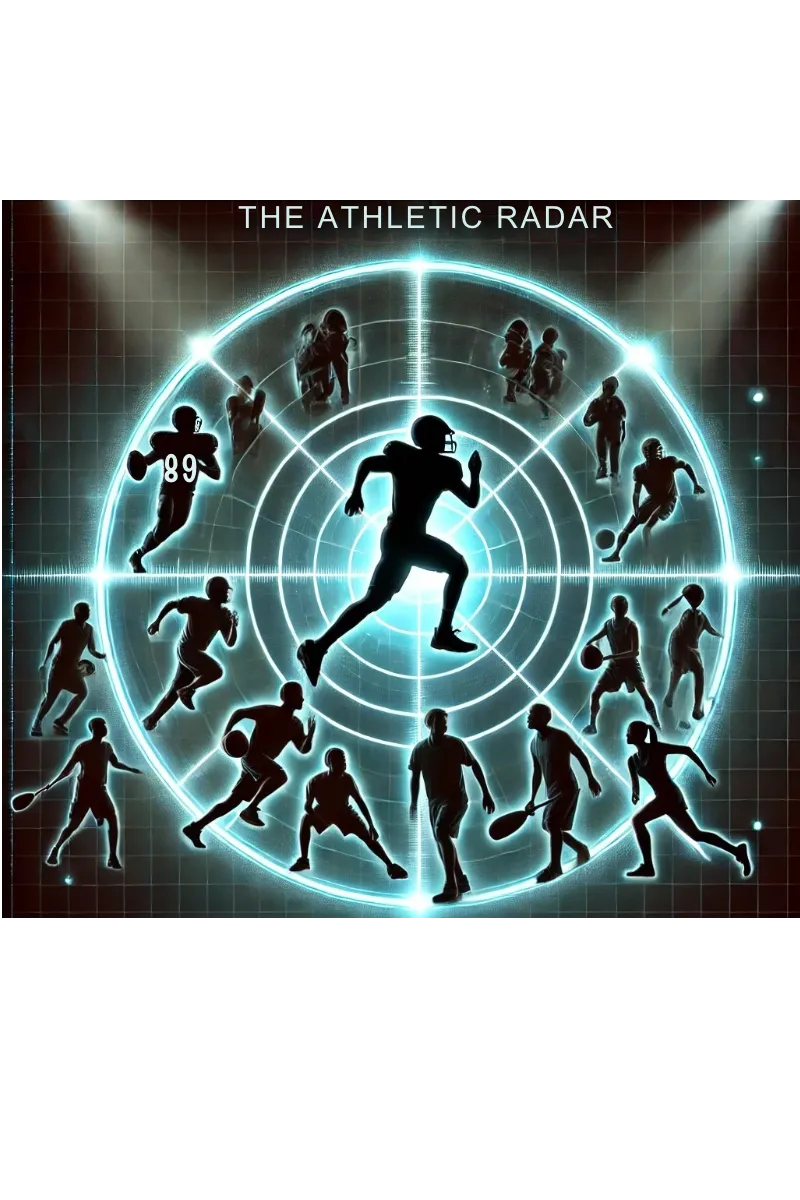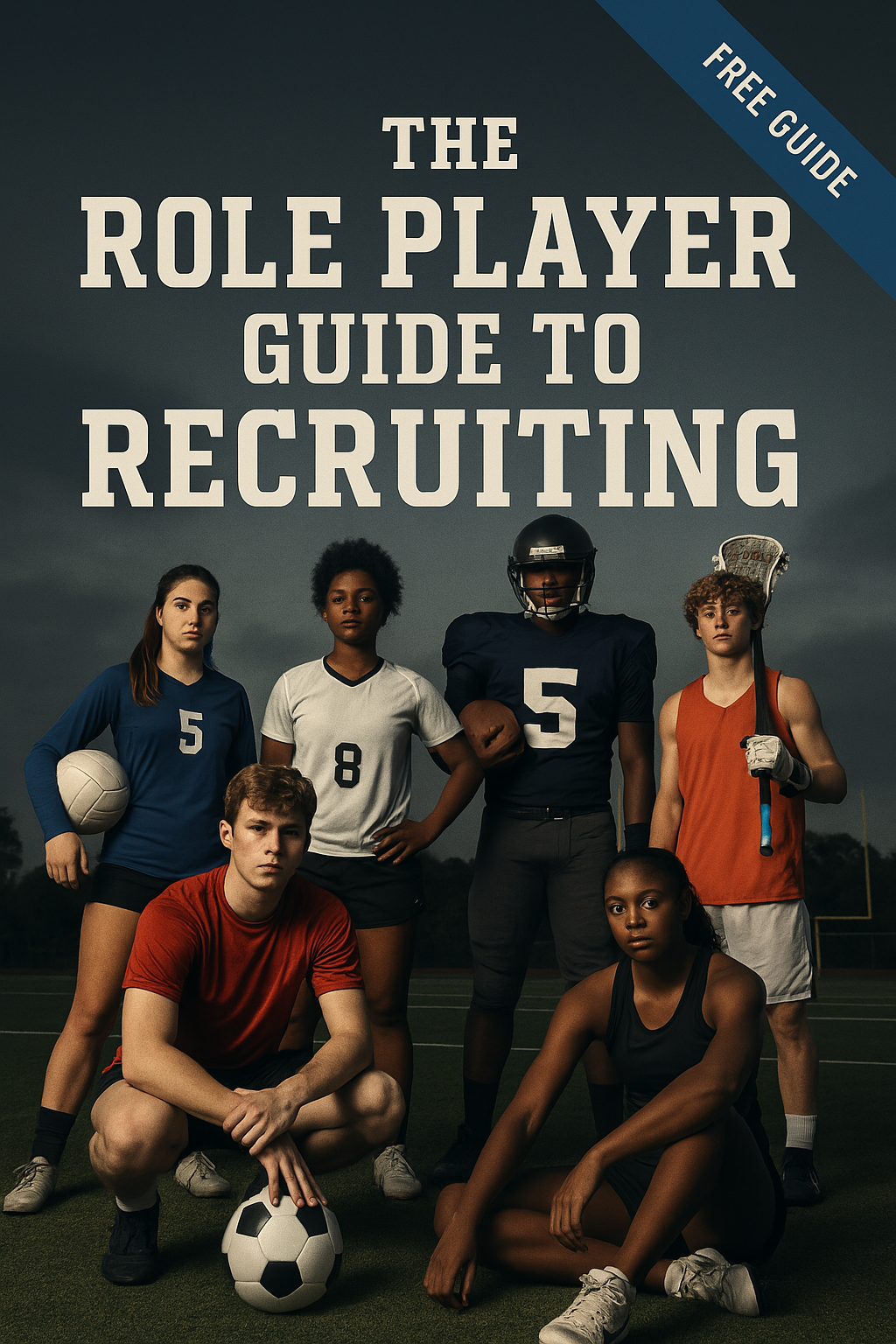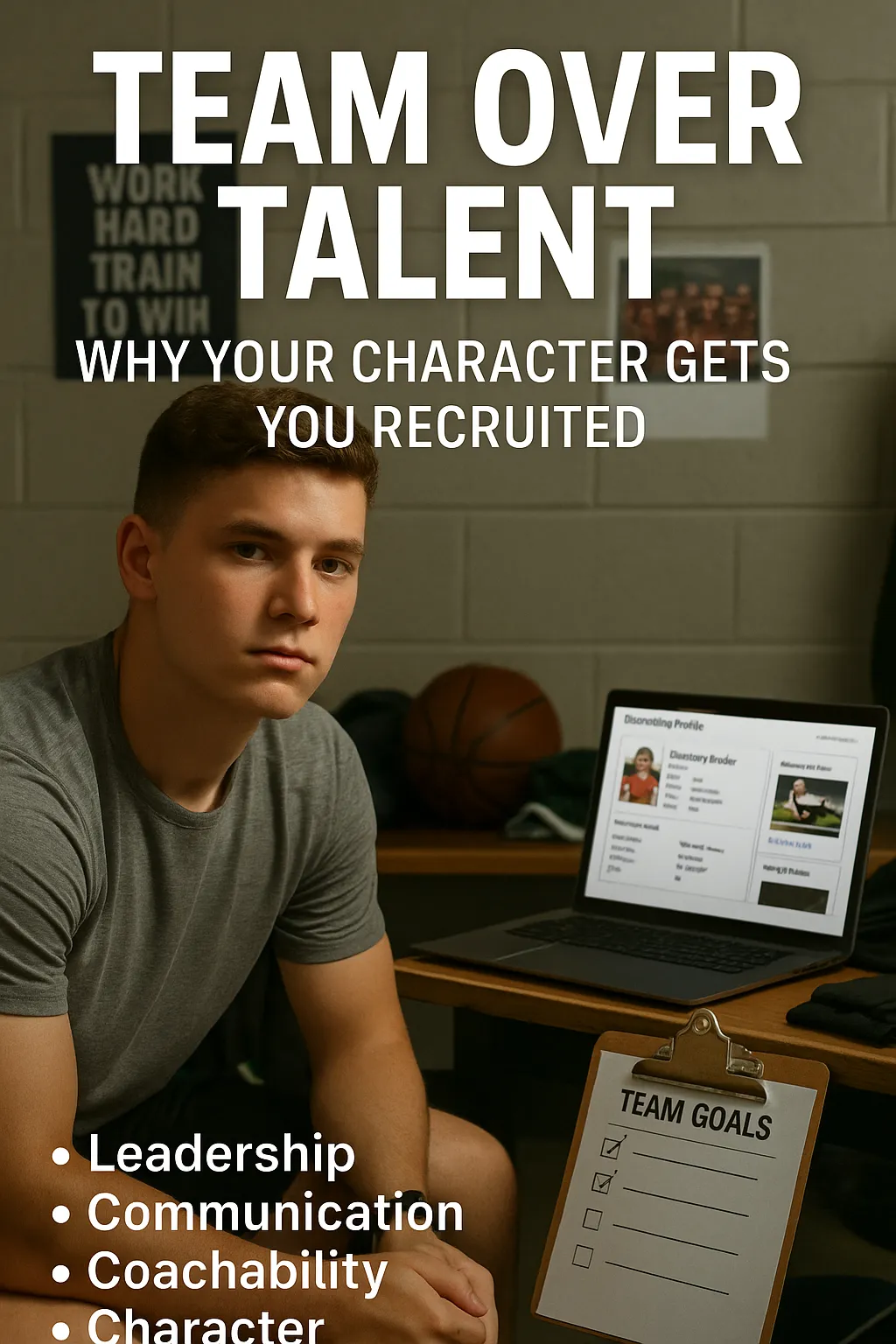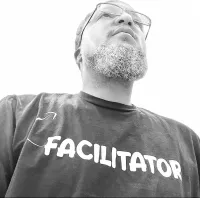

Your Success, Our Priority
Browse our articles below
Make sure to request our FREE Role Player Guide to Recruiting
WHILE SUPPLIES Last!!!
🏀⚽🏐🏈⚾🎾🏒🏊♂️🥍🎽 Free Download: The Role Player Guide to Recruiting
Not a star? Not a problem.
Whether you’re passing, blocking, digging, assisting, or just bringing relentless energy from the sidelines, this guide was created for athletes like you.
The recruiting world often highlights the MVPs and stat-sheet stuffers. Colleges also recruit role players, those who lead quietly, contribute consistently, and do what their team needs most.
This free guide gives you the tools to stand out and get recruited process started, no matter what sport you play.
🙌 This Guide Is Built For:
Athletes in basketball, soccer, volleyball, football, baseball, softball, lacrosse, track & field, cross country, tennis, hockey, wrestling, cheer, swimming, field hockey, and more. Defenders, passers, relays, utility players, blockers, reserves, bench leaders. Student-athletes who want to lead, even without the spotlight. Parents and coaches who want to support without burnout
💥 Why It Works:
Because colleges do not build teams with just stars, they build them with
contributors.
And many of the most successful college athletes were once role players who outworked the hype.

Here's what you get:

✅ How to stand out as a role player in any sport
✅ Tips for gaining exposure—even if you’re not the starter
✅ Scripts & strategies to communicate with college coaches
✅ Sport-adaptable advice and mental performance boosters
✅ A full action plan to move your recruiting process forward
Click the more stories button for additional articles

Team Over Talent: Why Your Character Gets You Recruitedw Blog Post
Team Over Talent: Why Your Character Gets You Recruited
Talent opens doors, but character keeps them open. College coaches recruit athletes who uplift the locker room, follow directions, and lead under pressure. Your attitude, leadership, and humility often matter more than stats when programs are choosing between two similarly skilled players.
What Did Nick Fury Mean by “He’s Not a Team Player”?
In The Avengers, Nick Fury famously says:
“He may be on the team, but he sure isn’t a team player.”
He is calling out the kind of person who wears the uniform but does not embrace the mission. In recruiting, that same principle applies. You can be the most talented athlete in the room, but if coaches hear you are toxic, lazy, or selfish, you have just lost the scholarship.
What Does It Mean to Be Recruitable Beyond Talent?
Talent is expected. What coaches need is:
A locker room asset, not a liability
A leader who models effort, communication, and buy-in
A student-athlete who responds well to correction
A teammate others want to be around
Red Flags That Hurt Your Recruiting Value
Arguing with coaches
Blaming others for losses or poor performance
Being visibly disconnected or moody at practice
Skipping offseason training or study hall
Ignoring communication from recruiters or mentors
These signals tell a coach, “This player may be a problem at our program.”
What Coaches Say About Character
Many coaches use this phrase:
“We recruit talent. We sign character.”
When deciding between two athletes with similar ability, the tiebreaker is almost always:
Coachability
Team chemistry
Academic discipline
Leadership ability
Communication with staff
How Facilitate The Process Helps You Stand Out
Facilitate The Process makes character visible:
Structured profiles that showcase academics, leadership, and mindset
Guided messaging templates that show professionalism and maturity
Built-in follow-up systems that reflect consistency and discipline
Progress tracking that demonstrates accountability
You become more than a stat sheet, you become someone coaches trust.
Game Plan Takeaway
Talent might get you noticed, but character gets you signed. Coaches do not just want someone who can score, they want someone who can lead, sacrifice, and commit.
You are always auditioning: on the court, in the classroom, and on every call or email.
Be the player who raises the standard.
Be the athlete others respect.
Be more than skilled—be dependable.
Facilitate The Process helps you show that.
#TeamOverTalent
Resources & Community
🎯
Follow Facilitate The Process on Facebook
https://www.facebook.com/facilitatetheprocess/
🌐
Join Our Recruiting Community
🔗
Get Started Today

